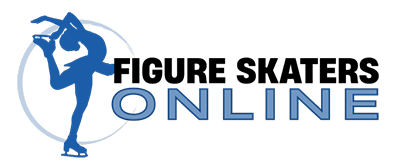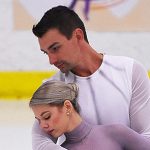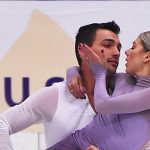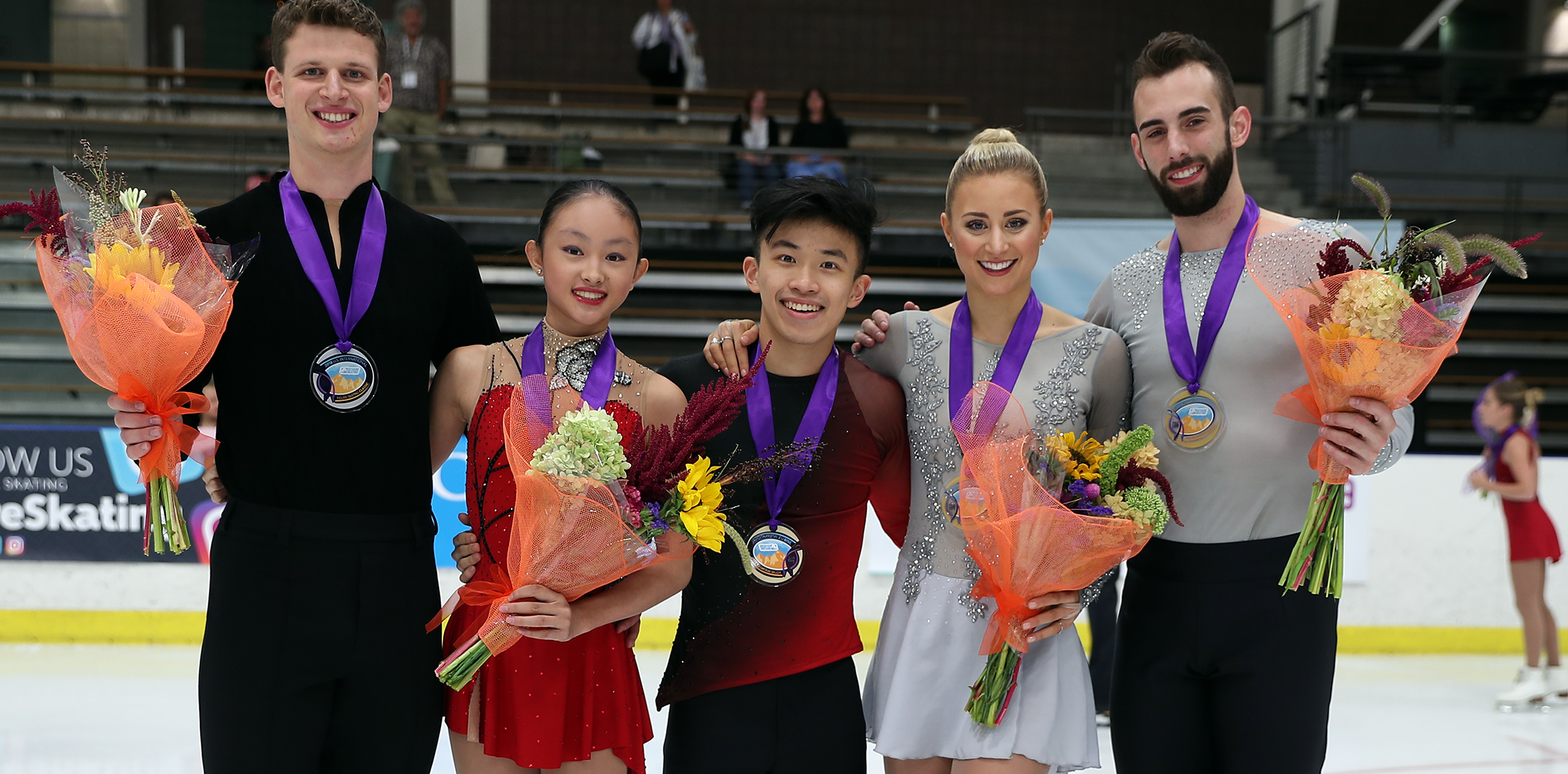By Claire Cloutier, special to Figure Skaters Online
Photo by Kirsten Moore-Towers (via Instagram)
Last year was a season of setbacks for Kirsten Moore-Towers and Michael Marinaro of Canada. First, Moore-Towers suffered a concussion, which led to the team withdrawing from their Grand Prix events. Moore-Towers/Marinaro then returned to win a bronze medal at Canadian Nationals in January, but were not named to the Canadian team for the World Championships in Helsinki.
Despite these obstacles, Moore-Towers and Marinaro entered the Olympic season with a positive attitude and a solid training plan. It all paid off this week as they posted their first international victory, winning the gold medal at U.S. International Figure Skating Classic.
Cloutier, who was in Salt Lake City covering the event for Figure Skaters Online, spoke with Moore-Towers and Marinaro briefly after their free skate in Salt Lake City to get their thoughts on the event.
Figure Skaters Online (FSO): Congratulations on the win!
Moore-Towers (KMT) and Marinaro (MM): Thank you.
FSO: It’s your first Challenger Series win, isn’t it?
KMT: Yes, it is. So it’s exciting. Right now, so soon afterward, I’m still thinking about the things I could have done better. I don’t feel that I personally did my best skating today, in terms of skating skills. And that’s something we had been working really hard on. But I just got off the phone with our choreographer [Julie Marcotte], and she told me to to take the achievements when they come.
MM: Yes. We know we still have a lot of growth to do in the next six weeks, leading up to Cup of China.
FSO: Cup of China is your next event?
KMT: Yes. And we do have 6 weeks, a lot of time, to–
MM: –Clean things up.
KMT: I think that’s the advantage of coming out so early. We felt like we started training a lot earlier this season, and we were prepared a lot earlier. So I felt like we could do a good job here, and feel confident about the work we put in, and [still] have time to change things up if we need to, before China.
FSO: In terms of feeling confident and prepared, does it help that you’re re-using last year’s Un Ange Passe free skate program?
KMT: Yes, absolutely. Although today, I felt like I forgot the steps a bit! Yes, I think it has helped. Because we knew exactly how to train it. We were able to start doing long programs earlier, because we knew exactly where the breathing spots were, and how to train it in sections. And what to take out, if it was that kind of training day.
MM: With keeping the program, we’re about 7 weeks ahead of where we were last year.
KMT: Yes. We’ve not competed a long program in the summer together, ever. So [this year] is the first time. And I’m glad we did. I felt like it benefited us, for sure.
FSO: Is that partly why you chose to keep the long program–to save time, going into the Olympic season?
MM: It was because last year, we didn’t compete on the Grand Prix circuit. We only got out internationally at Four Continents, and then at World Team Trophy.
KMT: When we were choreographing this program, we loved it so much. And personally, I didn’t feel like we ever did it justice last year. So we’re giving ourselves a chance–
MM: –To get to its potential.
KMT: And hopefully, we’re a different team and different skaters [now]. We have revamped it a lot. We switched the order of a couple elements, so it’s slightly different. I hope that we will grow with it throughout the season.
FSO: Speaking of elements, you’ve added a difficult new jump combination to your free skate: Double Axel/half loop/triple Salchow. How did you decide to go for that combo? And how do you feel about your progress with it?
KMT: Last year in the off-season, I was playing around with jumps. And I had never done a half-loop/triple Salchow before. And Mike tried it the first day, and he was really good. And I couldn’t really figure it out. But once I had figured it out, I thought: ‘Maybe I’ll try this with the double Axel. And in time, it became something [that] we thought could be a cool thing that we do–that not too many other pairs are doing. But last season, I just didn’t have the training to back it up. We tried it twice, at Nationals and at Four Continents, and I was not successful either time. So it took some jump lessons with [jump coach] Nicholas Young, and a little bit of technique work. Not because I didn’t have the technique, but more so that I knew exactly what my technique was. I’ve always been a jumper who is fairly reliable. But sometimes, I was completing these jumps and not really knowing how or why, I was just doing it. Nick Young—we call him our phantom coach, because you never really see him, but behind the scenes … he really helped us a lot this off-season, in feeling more confident. We see him twice a week, and I love it. There’s some high-level singles skaters there [at his rink]—Liam Firus and Elladj Balde (both of Canada)—so it’s fun to jump with them, a couple times a week. I really, really enjoy it.






